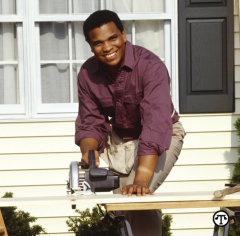 (NAPSI)—Warmer weather means more time spent outside for both children and adults. Whether your outdoor activity includes improvement projects around the home or fun and games in the backyard, you need to be aware of some electrical hazards that may occur.
(NAPSI)—Warmer weather means more time spent outside for both children and adults. Whether your outdoor activity includes improvement projects around the home or fun and games in the backyard, you need to be aware of some electrical hazards that may occur.
To help, the Electrical Safety Foundation International (ESFI) would like to share these tips:
• It’s common knowledge that water and electricity don’t mix, but spring showers may increase your risk of electrical shock due to sudden rain or standing water. Do not use an electrical tool that is wet or close to water.
• To further reduce your risk, install ground fault circuit interrupters (GFCIs) in your outdoor outlets and in the garage to help prevent electrocutions and electrical shock injuries. You can also purchase portable outdoor GFCIs for temporary use.
• Next, check the product label or manual and use only electrical products, such as extension cords, that were intended for outdoor use. Also, be sure to use only equipment that displays a mark indicating that it has undergone testing by an independent laboratory such as Underwriters Laboratories (UL), Intertek (ETL) or Canadian Standards Association (CSA).
• Inspect your tools’ cords and plugs for damage. Any damaged products should not be used and instead should be taken to an authorized repair center or thrown away. As you work, remember to always hold power tools by the insulated gripping surface to avoid electrical shock. Lastly, if your work requires a generator, make sure your generator is properly grounded and well ventilated.
Also, make sure you remind kids of these important safety tips:
• If they see a downed power line, they should stay away from it and report it to an adult.
• Do not play with toys, especially kites and remote control airplanes, or climb trees near power lines.
• Go inside right away if they hear thunder or see lightning—do not seek shelter under trees.
• Do not play around neighborhood electrical substations or boxes.
For additional electrical safety information, visit www.esfi.org.



